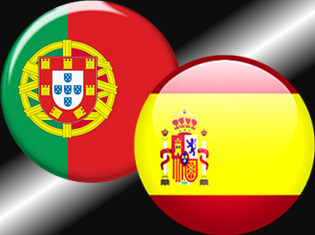 Legal online gambling is coming to Portugal, the country’s government announced on Thursday, Oct. 3. The news came following a visit to the country by members of the International Monetary Fund, the European Union and the European Central Bank, the troika of creditors responsible for doling out Portugal’s badly needed €78b bailout. The money tap is set to be turned off in 2014, but the country’s finances are in no way restored to life, with its jobless rate expected to hit 17.7% next year. In other words, the government in a frantic hunt for new revenue streams and necessity is proving the mother of liberalization.
Legal online gambling is coming to Portugal, the country’s government announced on Thursday, Oct. 3. The news came following a visit to the country by members of the International Monetary Fund, the European Union and the European Central Bank, the troika of creditors responsible for doling out Portugal’s badly needed €78b bailout. The money tap is set to be turned off in 2014, but the country’s finances are in no way restored to life, with its jobless rate expected to hit 17.7% next year. In other words, the government in a frantic hunt for new revenue streams and necessity is proving the mother of liberalization.
Portugal’s online gambling market is currently the sole province of betting and lottery monopoly Santa Case de Misericordia de Lisboa (SCML), but legislators have been flirting with the idea of regulating and taxing online gambling companies for a couple years now. A 2011 report estimated the state could reap €250m in online gambling “concessions” in its first year of a liberalized market.
DLA Piper reported that Portugal’s government has decided to create a new working group in the next three months to discuss the online gambling market and to prepare a study on suitable regulatory measures. The government has offered no estimates on when the country’s regulated online gambling market could launch; nor any info on how its regulations might compare with those of its EU neighbors.
A TAXING PROBLEM IN SPAIN
Suffice it to say that the online gambling industry hopes Portugal doesn’t adopt a taxation scheme similar to that of its neighbor Spain. A recent Jdigital-commissioned, Deloitte-authored report found that Spain’s licensed online gambling operators generated a combined €234m in gross gaming revenues in the regulated market’s first year of operation. Yet these operators reported a collective €72.5m net loss over the same period, thanks “mainly due to the high tax burden” Spain imposed on these operators.
Among the recommendations made in the Deloitte report is a reduction in the gaming tax from 25% to 10% and basing those taxes on net revenue rather than gross. The report also suggests allowing operators to enter into more local partnerships in order to reclaim a higher chunk of the VAT they presently pay out, permitting cross-border poker liquidity with regulated markets in other EU member states and allowing players to claim all losses against winnings on their tax returns to discourage them from opting to play on operators holding licenses issued somewhere other than Spain. Enacting these and other changes could reduce operator losses from their present level of 31% all the way down to 10%.
In presenting the report’s findings to the Confederation of Spanish Industry, Jdigital president Sacha Michaud said implementation of the recommendations could head off the carnage witnessed north of the border in France, where “negative tax treatment has caused one of the most important markets in Europe to be significantly reduced, making it untenable for the majority of companies operating there.” It remains to be seen whether Spain will heed these warnings, or whether Portugal will learn from Spanish and French mistakes.
